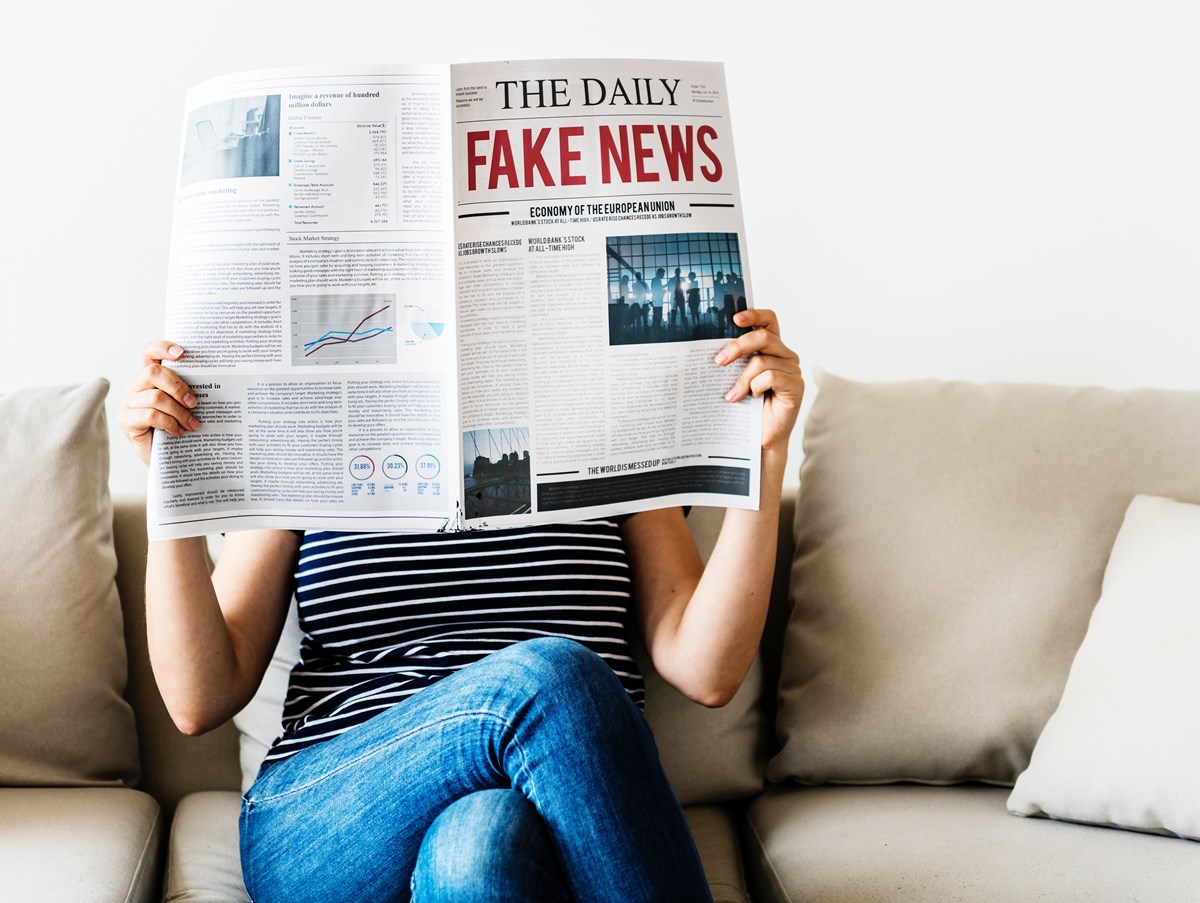"Fake news" has become the go-to response to any question or news story a public figure doesn't agree with or like. Though it was popularized in the US, politicians and pundits all over Europe now use the same response to deflect, avoid scrutiny, and sometimes point out reality.
Mostly humorous (but potentially dangerous) accusations of fake news have become business as usual from public officials, social media butterflies, and commentators around the world. But does that mean false stories and those who create them should be regulated and censored by the government?
The Case against Government Censorship
Ever since the internet became a primary means of business and individual communication and commerce, it has been under attack from various government agencies, social justice advocates, and watchdog groups who want to regulate it or shut down large sections of it.
Under the guise of protecting citizens' rights, government agencies around the world have implemented digital regulations that range from Europe's GDPR (General Data Protection Regulation) requirements to the overreach of Australia's intrusive "snooping laws." We'll leave discussions about "net neutrality" and the latest exploits of Mark Zuckerberg for another time.
How can we have a free, unfettered internet and a micromanaged nanny state at the same time?
While most might agree that publishing false or misleading news stories can be harmful to a public that deserves honesty and transparency from their governments and news media, regulating the speech of groups or average citizens in the information age is impractical and nearly impossible from a legal and enforcement standpoint. It also leads to a slippery slope that threatens to punish protected forms of speech like satire and valid criticism.
In a world with emerging pockets of Orwellian newspeak popping up everywhere, balancing the demand for government and journalistic integrity with the public's right to freedom of expression leaves us with no easy answers.
How can we have a free, unfettered internet and a micromanaged nanny state at the same time? Can a global, borderless means of discourse and information sharing ever really be regulated, or should moderation fall to private enterprise and the discernment of we the people?
Totalitarianism versus Technology
Many artificially intelligent algorithms can help with the fake news problem, but they aren't foolproof. Using platforms like search engines and web browsers that aren't subject to bias or paid advertisers is another. All of these approaches rely on a partnership between technology and private enterprise to come up with monitoring systems that are fair and impartial.
Sometimes, technology isn't even necessary to root out fake or unreliable content and content creators.Technology has not only made the world safer and more efficient; it has also made communication more dangerous in some respects. Most large platforms use verification mechanisms to determine if a website, group, or individual is who they say they are, and they'll mark such platforms with a verification checkmark or authentication symbol. It doesn't always guarantee accuracy in their reporting, but you'll know who to hold accountable.
Legitimate satire websites typically include a disclaimer at the bottom of their pages and on every story (although The Onion doesn’t—rascals). You can click on the links embedded in articles to determine the source and to learn more about the author of that content. Typing a quote into a search engine will reveal if it's an actual quote, the context, and who deserves credit. Often, all it takes is looking beyond click-baity headlines and jumping straight to the like/share buttons to determine if something is fake, satire, or a complete lie.
When Fake Becomes Dangerous
Scams and schemes are not new, nor are they unique to the internet. There are some who believe that if you fall for a phishing scam, you deserve to lose all of your money, but that’s kind of extreme.
The government has determined that not all speech is protected. The most commonly cited example is yelling "Fire!" in a crowded movie theater. Any speech or literature that is determined to incite violence can also be subject to criminal liability, and it is illegal under civil law to publicly slander or libel someone.
But technology has not only made the world safer and more efficient; it has also made communication more dangerous in some respects. Take the example of deep fakes.
Technological Fakery Advances
Deep fakes are videos of real people that are doctored by high-tech software to make it appear that they are saying things that are untrue or misrepresented and are not anything the subject of the video ever actually said. It takes merely reporting something out of context to a new level of shenanigans.
Altered videos can sway public opinion and become dangerous when they incite us into wars against ourselves or other nations.
A famous recent example is the video of Nancy Pelosi that was altered slightly and slowed down to make it appear that she was slurring her words, implying that she is often drunk on the job.
The problem is that such altered videos can sway public opinion and become dangerous when they incite us into wars against ourselves or other nations or trick us into inviting oppression. In light of this frightening trend, government agencies in the US and UK are pushing to regulate or punish social media companies where such fakery is posted.
Does Self-Regulation Ever Work?
Does a hosting platform bear the responsibility for articles, videos, and photos which are posted and shared by public and private citizens (or groups) if their intent in sharing it is proven to be malicious? That’s the big question. Tech industry giants like Facebook, YouTube, and Twitter have put self-regulatory mechanisms in place to block and report content but there are persistent complaints—typically from the right against the presumed leftward tilt of these outlets—that biased algorithms and unfair curators make it a pointless exercise.
Human nature tells us that even if something is proven false, a certain number of people still think it’s true and will share it even harder thanks to their own cognitive dissonance or sheer sensationalism. This typically leads to a heavy-handed government stepping in to provide regulation, a move that can cause more damage in the area of civil liberty loss than the original fake news ever did.
But there’s a good chance that’s where we’re headed.
Where’s the Culprit?
Another difficulty in assessing blame for fake news and deep fakes is finding out who started the thing in the first place. The same virtual private network services that are heavily promoted as a way for the average internet user to fight off malware and viruses associated with hackers don’t magically make themselves unavailable to those bent on propagating fake news.
We also have to stop rewarding sensationalists, opportunists, and trouble makers with likes, views, and shares.
That IP anonymity created by a VPN makes it hard for regulating bodies to find out who should be punished due to the difficulty in finding where it started in the first place.
What's the answer? Until tech companies come up with a way to get rid of malicious content with a fair, unbiased, even-handed approach, it should be left up to us to use our brain to fact check and become discerning in what we view and share. We also have to stop rewarding sensationalists, opportunists, and trouble makers with likes, views, and shares. Content can't go viral without our help.
Final Thoughts
We're lucky enough to still live in a country where we have relative freedom of expression so far. Unless you plan to shun the internet altogether, your best bet is probably not to look to a government body to save you from the agitators of the world.
There's an old saying that you can't legislate stupidity. Gullible people are always going to exist. Knee-jerk, overreaching policies won’t change that fact and will only end up stripping freedoms from everyone.

